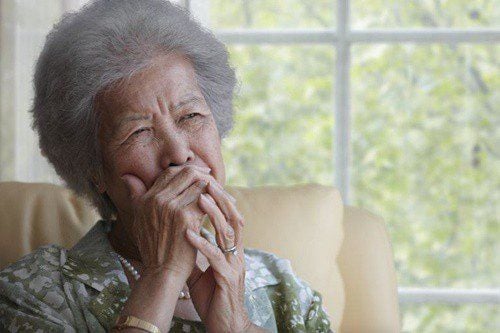This is an automatically translated article.
Currently, there are more and more effective methods of treating mental illness, helping to improve the patient's quality of life as well as reduce the burden on the family and society. The following article will show the popular social re-adaptation therapies for psychiatric patients that are applied today.
1. Prevention of 3 levels of mental illness
Mental illness is divided into 3 levels, corresponding to the condition as well as the ability to treat mental illness.
Prophylaxis grade I: completely cured, not allowing mental disorders to appear. Currently, there is no complete solution to cure it. Level II prevention: Early detection, early intervention and treatment help prevent harms of the disease Level III prevention: Social re-adaptation therapy, psychosocial rehabilitation for mentally ill people so that they can live and work usefully for themselves, their families, the society and integrate into the community to a certain extent (with the cooperation of doctors, family and society).

Liệu pháp tái thích ứng xã hội cần có sự phối hợp của bác sĩ, gia đình và xã hội để đạt hiệu quả cao nhất
2. Social Rehabilitation Therapy for Mental Patients
Drug treatment:
Specify the type of drug, the dose depends on the patient's health condition. Compulsory treatment of mental illness is necessary for the patient to use drugs.
The drug will have the effect of quickly extinguishing the intense agitation, the patient's unconscious destruction when having an attack. After the seizure is over, in addition to paying attention to the patient to continue taking medication, it must also be combined with other methods of psychological treatment, art such as music, painting, or physical therapy. therapy and sports as well as other social re-adaptation labor methods to achieve the best recovery effect.
Psychotherapy:
Psychology greatly affects the outcome of treatment, not only in mental illness. For patients with mental illness due to psychological causes, it is imperative to use psychotherapeutic therapy to be effective.
Psychotherapy methods that are commonly applied today include:
Direct psychotherapy: explanation, wake-up suggestion, hypnotic suggestion, self-suggestion,... Therapy Indirect psychology: giving mental patients a feeling of comfort, trust, and peace of mind for treatment. Simultaneously, combining layout and decoration of patient rooms, cool and bright rehabilitation rooms, ... not isolated from the outside world, At the same time, doctors and nurses serve with spirit, appropriate attitude and standards for the patient to feel comfortable and confident.

Kết hợp thể dục thể thao cũng như các phương pháp lao động tái thích ứng xã hội khác để người bệnh phục hồi tốt nhất
Applying labor methods - social re-adaptation therapy:
For mentally ill people to do light work for the purpose of treatment, helping to restore mental activities.
Occupational therapy is the most basic social re-adaptation therapy in the treatment of people with mental illness. If the patient is not able to do basic tasks, he or she will easily become autistic and quickly suffer from mental decline.
This is also a method to help the patient connect with the community and society because in the process of working, working will help the patient focus, increase willpower, forget about unpleasant feelings caused by hallucinations. , delusions, self-reflection, ... thereby helping to improve the condition, reduce anxiety about the disease, negative thoughts, and at the same time help the patient be happy and excited by the beneficial working mentality. .
Please dial HOTLINE for more information or register for an appointment HERE. Download MyVinmec app to make appointments faster and to manage your bookings easily.













